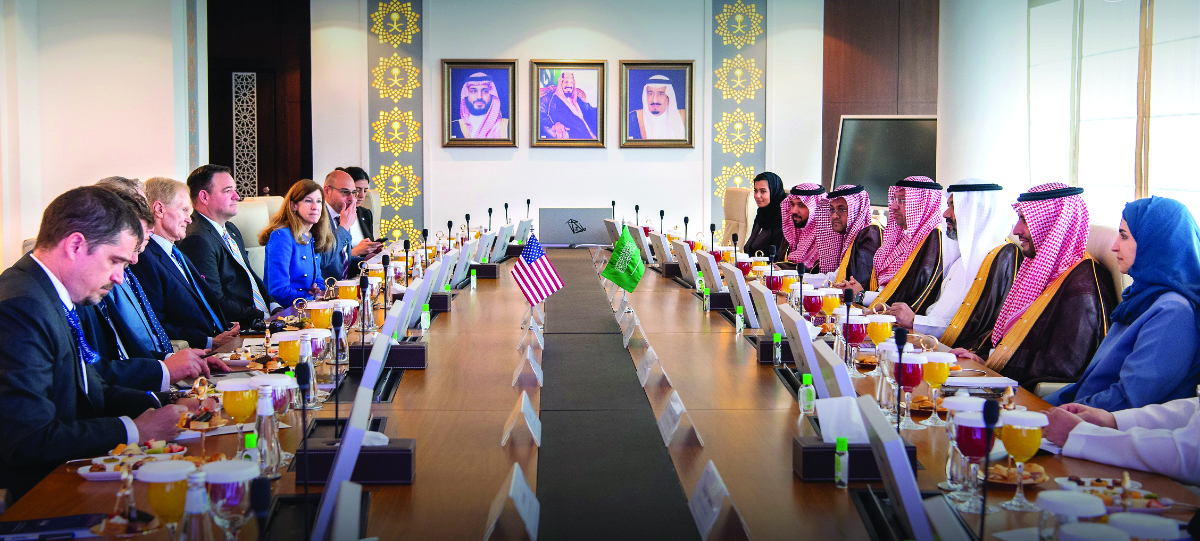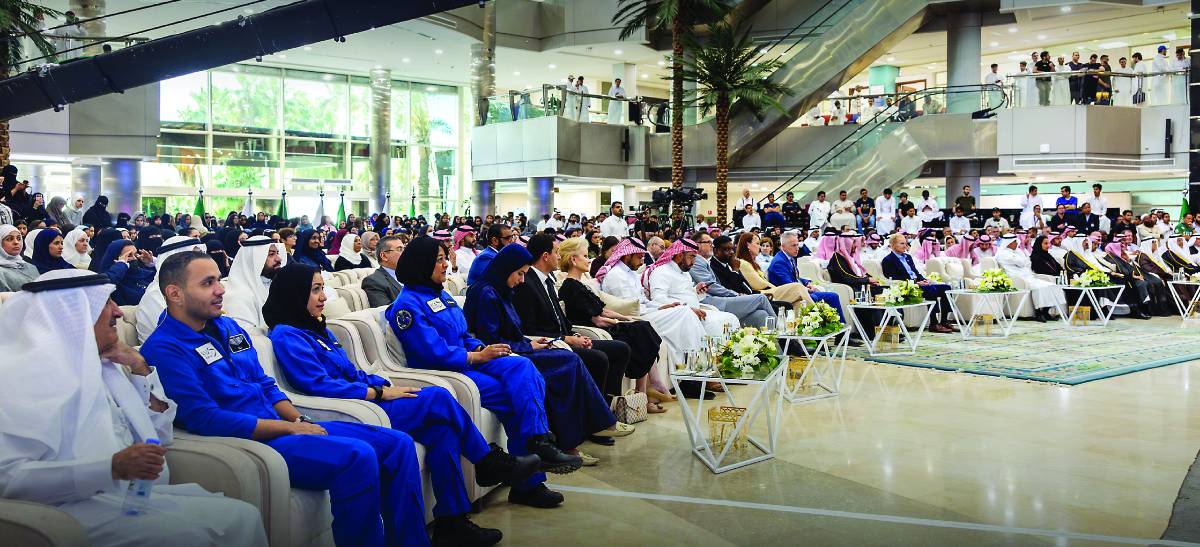RIYADH: Delegations from NASA and the Saudi Space Agency visited Prince Sultan University on Tuesday to engage with students on the future of human missions in space.
A panel session titled “Beyond Earth: Journeys to the Stars,” brought together NASA administrator Bill Nelson and Saudi astronauts Rayannah Barnawi, Ali Al-Ghamdi and Mariam Fardous, to discuss their own experiences in space.

Chairman of the Saudi Space Agency Abdullah Al-Swaha recently held talks with NASA’s Bill Nelson. (Supplied)
They also debated the future of human missions in space and encouraged the university’s students to be part of the Kingdom’s aspirations in the space field.
Mohammed Al-Tamimi, CEO of Saudi Space Agency, and Ambassador of the US to the Kingdom Michael Ratney, were also present at the reception.
HIGHLIGHTS
• The panel discussion hosted at Prince Sultan University debated the future of human missions in space.
• During his visit to the Kingdom, Bill Nelson also met Munir Eldesouki, president of King Abdulaziz City for Science and Technology.
In an interview with Arab News, Nelson highlighted the importance of space missions. “When we go into space, we have to invent and create new things and that helps us advance our standard of living here on the earth,” he said.

The panel session titled ‘Beyond Earth: Journeys to the Stars’ brought together NASA administrator Bill Nelson and Saudi astronauts Rayannah Barnawi, Ali Al-Ghamdi and Mariam Fardous, to discuss their own experiences in space. (AN photo by Huda Bashatah)
“One of the good examples that I gave in the speech today is the camera in your cell phone, that was developed by NASA. It’s a camera on a chip … there are so many technological outgrowths and spinoffs from our developing space technology.”
Nelson said that there would be further developments in the near future in pharmaceutical research and zero gravity on the International Space Station.
When we go into space, we have to invent and create new things and that helps us advance our standard of living here on the earth.
Bill Nelson, NASA administrator
“There are going to be some major breakthroughs, and already have been on developing drugs, for the cure of diseases. So, there’s a lot of excitement in the future,” he said.
Saudi Arabia has already achieved a high-calibre position in the space industry, he said.
Ahmed Yamani, president of Prince Sultan University, said that it had established a new college of space and aviation with the cooperation with the Saudi Space Agency and Al-Tamimi.
“We went through the process of the initiating this college, which is really based on what we already have … we have a program, aviation management, that was established with Embry-Riddle Aeronautical University in Florida.”
Yamani said that the university was already building the foundation of the space and aviation program with “external consultants that are working with us on both department and both programs. So, we want to definitely touch on the latest and the update updated programs in these areas.”
During his visit to the Kingdom, Nelson also met Munir Eldesouki, president of King Abdulaziz City for Science and Technology, and discussed ways to deepen cooperation in the space sector.
Chairman of the Saudi Space Agency Abdullah Al-Swaha held talks with Nelson in the presence of Al-Tamimi, and they discussed strategic partnership in the field of space to serve humanity.
The Saudi Space Agency is responsible for developing and growing its space sector with a focus on supporting economic growth, stimulating innovation and scientific research.






























